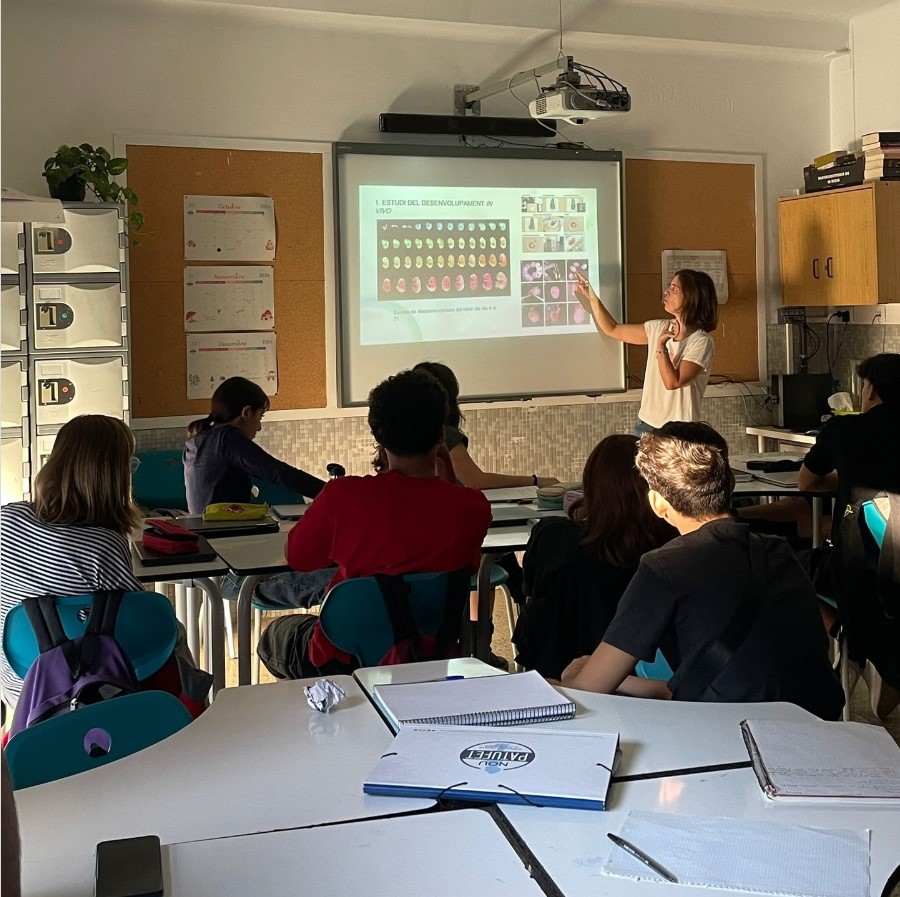As every year, the European Researchers’ Night takes place in the last week of September and this time the HYLIGHT project was present. Anna Ferrer from IBEC gave a talk to young students from a school in Barcelona about embryo development. In addition, an infographic explaining the project is available on the Catalan website of the event.

The European Researchers’ Night is a significant public event held simultaneously in various cities across Europe. During this event, researchers showcase different scientific disciplines and demonstrate their influence on daily life through engaging and interactive activities. The primary goal is to strengthen the relationship between the public and the scientific community, encourage interest in STEAM careers, and celebrate research accomplishments. The event also highlights exceptional research initiatives from Europe and beyond. Each year, approximately 1.5 million participants engage with and explore the world of science.
As part of this event, the Catalan organisation proposed a complementary activity aimed at students, called «Science mornings», in which different researchers went into classrooms to explain scientific topics. Anna Ferrer took this opportunity to talk about the development of the human embryo and assisted reproduction with a presentation entitled: «How we are when no one knows we are: the first days of the human embryo».
Yesterday, on the 11th of October, a group of 30 14-15 year old students from the Nou Patufet School in Barcelona had the opportunity to learn more about the first steps of embryo development and the difficulties faced by some women who have problems having a baby. She explained the rationale behind the HYLIGHT project and presented the new methodology developed in the project, based on the metabolic analysis of embryos using autofluorescence and artificial intelligence tools.
In addition to learning about embryonic development and the crucial stages of implantation in the uterus, the students were able to clarify their doubts on these and other topics related to human reproduction. It was undoubtedly a very fruitful «morning of science»!
HYLIGHT project is also featured on the Catalan website of the European Researchers’ Night, which offers information about several European projects being carried out in the region. To access this website (in English) click here.
